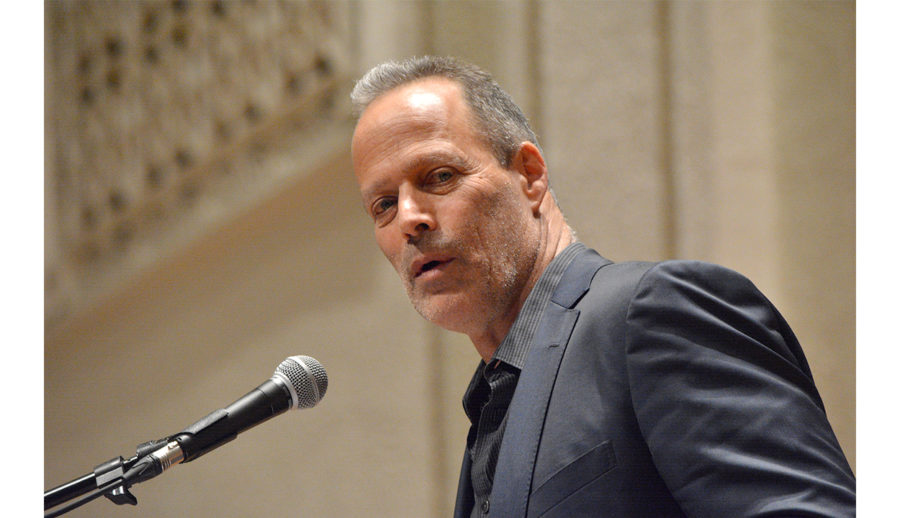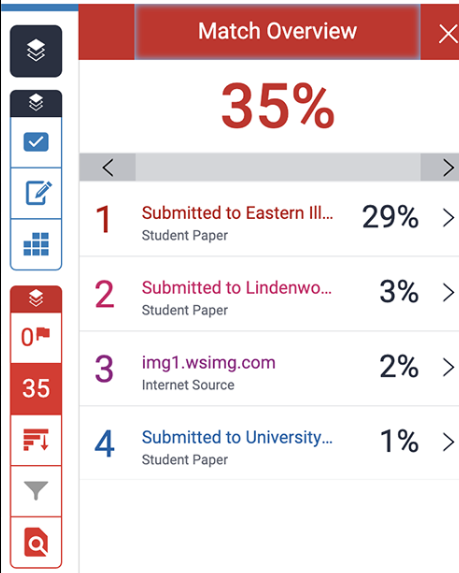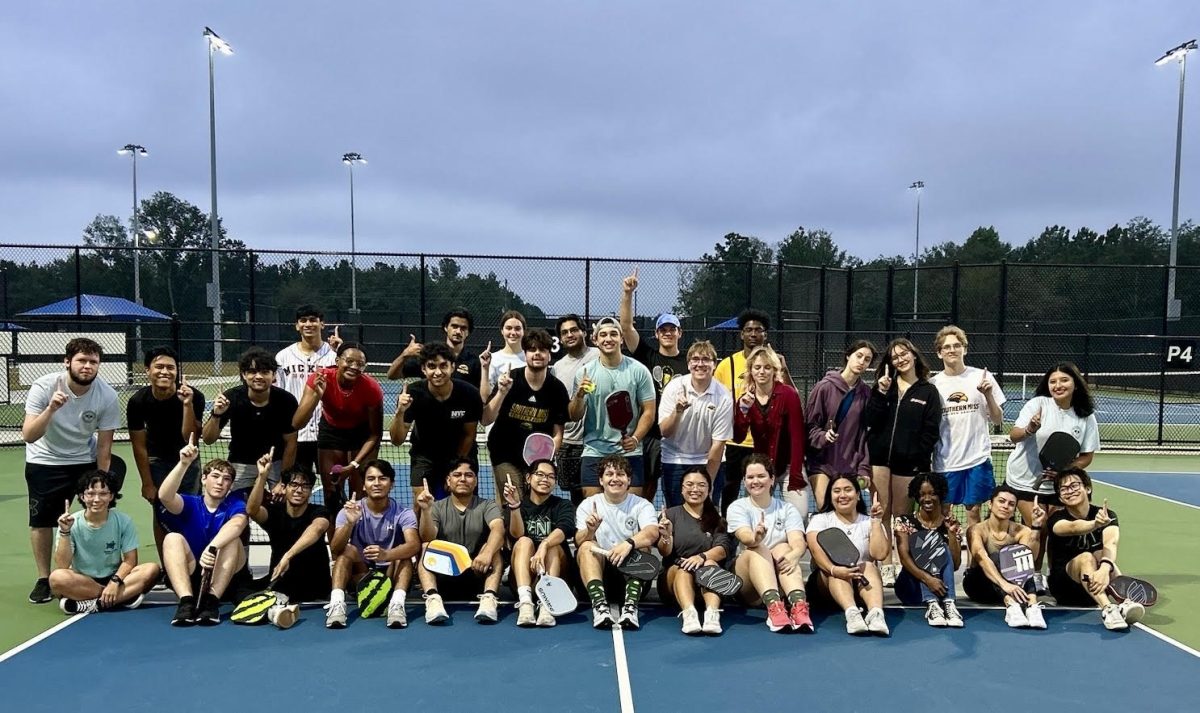Award-winning war correspondent and documentary filmmaker Sebastian Junger presented his lecture “Tribe: War Veterans” on Tuesday, April 11 at The University of Southern Mississipi in Bennett Auditorium at 6:30 p.m.
In conjunction with The Dale Center for the Study of War and Society, the University Forum organizers invited Junger as speaker for its 12th Annual Richard McCarthy Lecture and as the last University Forum for the 2016 – 2017 school year.
Junger published his fifth book “Tribe: On Homecoming and Belonging” in May 2016 which “combines history, psychology and anthropology, to explore what we can learn from tribal societies about loyalty, belonging and the eternal human quest for meaning,” according to his website.
Junger’s lecture focused on the interpersonal connections armed forces make in hostile situations, how adversity affects a community’s ability to thrive in dangerous situations and how transitioning from a “tribe mentality” into civilian society affects veterans psychologically.
Special Adviser to the University President on Military Veteran Student Affairs at USM Jeffery Hammond introduced Junger.
“Tonight’s guest speaker is, in my view, our generation’s version of Joe Galloway,” Hammond said.
Hammond said Junger came to share one thing thing tonight – truth.
Junger said conflict is close to the energy of connection.
“The other thing we see is how easily humans can affiliate with each other [through adversity],” Junger said. “Group allegiance is important to the human experience.”
Co-director of the Dale Center for the Study of War and Society Susannah Ural said what she liked most about Junger is his ability to connect war to society – which is the Dale Center’s main focus of study.
“Junger explains that as we’ve become more affluent, as we separate from each other , we lose the ability to help each other through challenges,” Ural said. “He explains how we’ve separated from the tribal mentality and with affluence comes isolation, which can have a negative impact on society.”
Ural said he looks at the loss of tribes and tribal culture, but it’s more complicated than that.
Junger said the United States has one of the highest rates of post traumatic stress disorder at 25 percent.
“What is it about our wonderful society where people would prefer [being at war]?” Junger said. “What happens with soldiers is they are picked up and put into our evolutionary past – they are eating together, they are sleeping together, they become emotionally dependent on each other. There were people in the platoon that hated each other, but they would die for each other.”
Junger said the highest depression rates occur in urban America.
“Although there are enormous benefits from affluence, there are some downsides,” Junger said. “What happens when you take modern society and collapse it? Do we revert? Yes, we do.”
Junger served as the 12th McCarthy lecturer. The Dale Center for the Study of War and Society founded the series in 2006 to “provide the campus and Hattiesburg communities a broad range of programming, ranging from a panel discussion led by veterans of the wars in Afghanistan and Iraq to more academic programs including talks by leading historians of war and society and military history,” according to the Dale Center’s website.
More information about The Dale Center for War and Society and The Annual Richard McCarthy Lecture seires can be found at usm.edu/ war-society.































